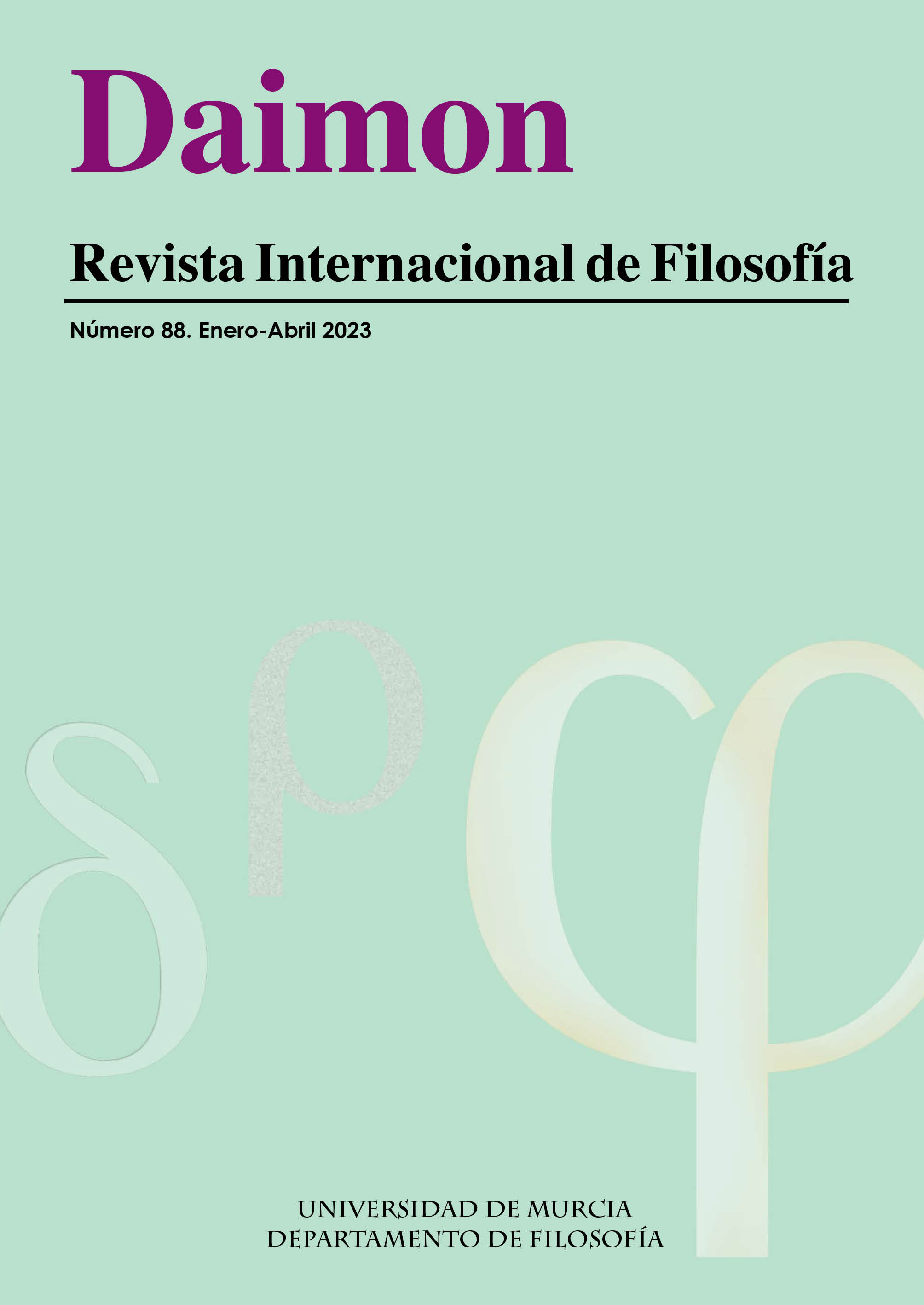Crimen, conexión y castigo: una objeción a la perspectiva retribucionista de la pena de muerte
Abstract
This paper raises an objection to the retributive view of the death penalty. If we take a psychological approach about what morally mat-ters, our intuitions on retribution and merit could be significantly modified. The claim that death penalty is the fair retribution to certain kind of crimes presuppose in the executed the existence of an underlying entity which would remain identic to itself troughth all the diachronic subjective changes. If this entity does not exist, or if its continuity is not what matters, the retributive nature of the death penalty could be considerably reduced.
Downloads
-
Abstract1425
-
PDF (Español (España))1844
-
HTML (Español (España))246
References
Albrecht, H. J. (2016), «Pena de muerte, efecto disuasorio y formulación de políticas». Consultado en línea el 29/03/2020, en http://www.academicsforabolition.net/files/2016/04/ap1.pdf
Amnistía Internacional, (1999), Error capital: la pena de muerte frente a los derechos humanos, Madrid: EDAI.
Bowers, W.J & Pierce, C.L. (1980), «Deterrence or brutalization: what is the effect of executions?», Crime and Delinquency, pp. 453-484
Demetrio Crespo, E. (2013) «Compatibilismo humanista», en E. Demetrio Crespo (dir) y M. Maroto Calatayud, (coord), Neurociencias y derecho penal, Madrid: Edisofer.
Demetrio Crespo, E. (2013) «Sobre el presunto efecto intimidante de la pena de muerte». Consultado en línea el 25/03/2020, en http://www.academicsforabolition.net/files/2016/04/ap2.pdf
Ehrlich, I. (1975), «The Deterrent Effect of Capital Punishment: A Question of Life and Death», American Economic Review, vol. 65, núm. 3, pp. 398-414.
García Amado, J. (2018), Retribución y justificación del castigo penal. Consultado en línea el 04/05/2020, en
https://www.researchgate.net/publication/328488849_Retribucion_y_justificacion_del_castigo_penal
Glover, J. (1990), Causing death and saving lives, London: Penguin Books.
Horta, O. (2010), «Interés en vivir y complejidad psicológica: un criterio transespecífico». Revista Laguna, 26, pp. 109-122.
Kant, I. (1987), «Sobre un presunto derecho a mentir por amor al prójimo», trad. Mario Caimi, en Cuadernos de Ética, Buenos Aires: Universidad de Buenos aires.
McMahan, J. (2012), “Moral liability to ´crime-preventing neurointervention`”. Consultado en línea el 24/03/2020 en http://jeffersonmcmahan.com/wp-content/uploads/2012/11/Moral-Liability-to-Crime-Preventing-Neurointervention.pdf
McMahan, J. (2002), The ethics of killing: problems at the margins of life, New York: Oxford University Press.
Organización de Naciones Unidas. (2015), «No hay evidencias del efecto disuasorio de la pena de muerte, alerta la ONU». Consultado en línea, el 30/03/2020, en https://news.un.org/es/story/2015/11/1344091
Parfit, D. (2004), Razones y Personas, Madrid: Antonio Machado Libros.
Copyright (c) 2023 Daimon Revista Internacional de Filosofia

This work is licensed under a Creative Commons Attribution-NonCommercial-NoDerivatives 3.0 Unported License.
Las obras que se publican en esta revista están sujetas a los siguientes términos:
1. El Servicio de Publicaciones de la Universidad de Murcia (la editorial) conserva los derechos patrimoniales (copyright) de las obras publicadas, y favorece y permite la reutilización de las mismas bajo la licencia de uso indicada en el punto 2.
2. Las obras se publican en la edición electrónica de la revista bajo una licencia Creative Commons Reconocimiento-NoComercial-SinObraDerivada 3.0 España (texto legal). Se pueden copiar, usar, difundir, transmitir y exponer públicamente, siempre que: i) se cite la autoría y la fuente original de su publicación (revista, editorial y URL de la obra); ii) no se usen para fines comerciales; iii) si remezcla, transforma o crea a partir del material, no podrá distribuir el material modificado.
3. Condiciones de auto-archivo. Se permite y se anima a los autores a difundir electrónicamente las versiones pre-print (versión antes de ser evaluada) y/o post-print (versión evaluada y aceptada para su publicación) de sus obras antes de su publicación, ya que favorece su circulación y difusión más temprana y con ello un posible aumento en su citación y alcance entre la comunidad académica. Color RoMEO: verde.











